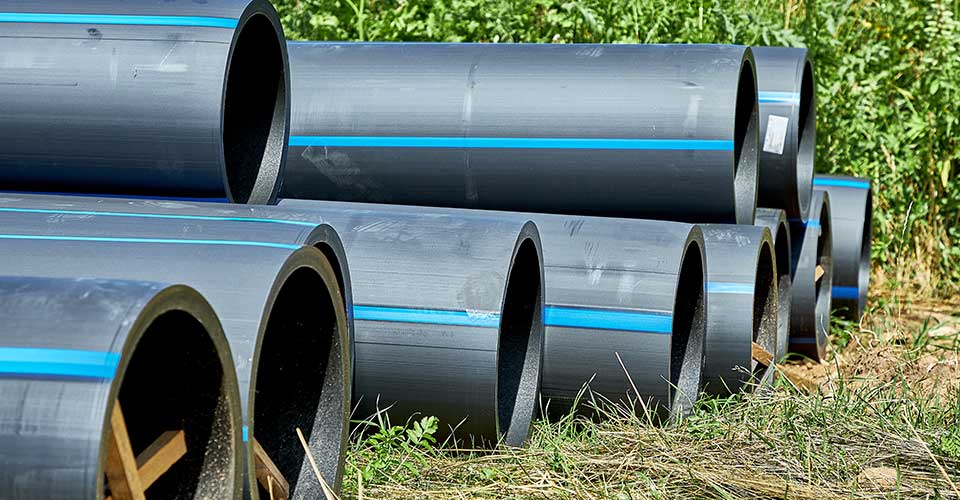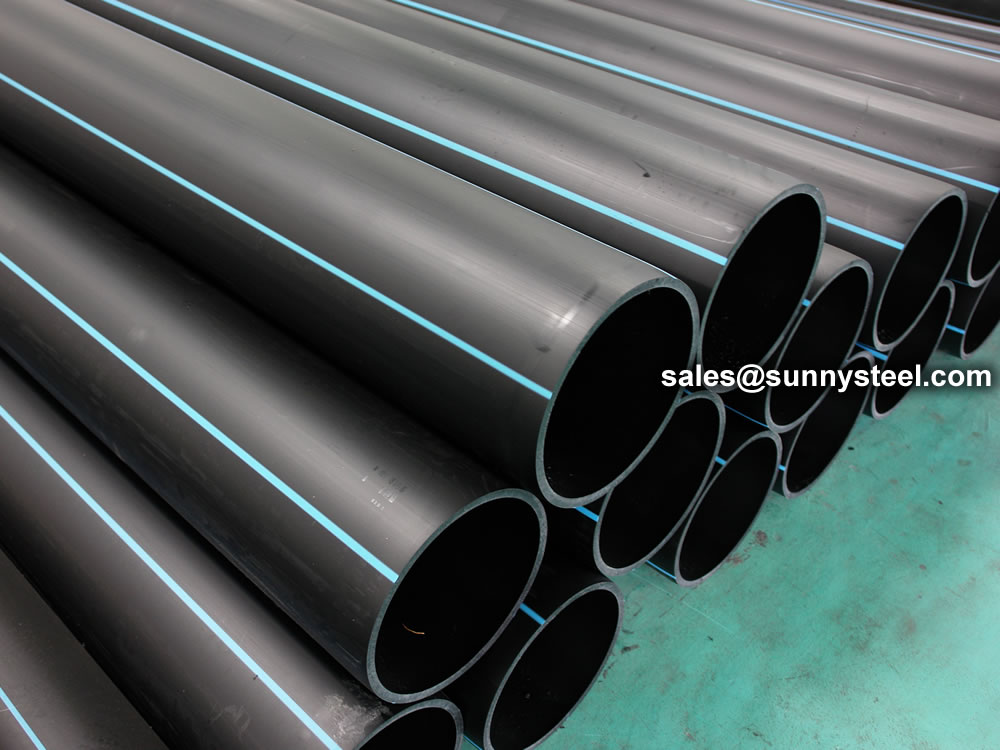Pipe Manufacturing Midland TX: Process Explained
A Comprehensive Guide to the Various Uses HDPE Pipeline in Construction and Market
HDPE pipelines have become a crucial part in modern building and construction and industrial applications. Their special homes, such as resistance to rust and light-weight layout, make them ideal for a wide variety of uses. From water system systems to farming watering, HDPE pipes provide options that improve effectiveness and sustainability. Recognizing their varied applications is crucial for professionals aiming to maximize infrastructure. What specific benefits do these pipelines give each industry?
Water System and Distribution Systems
Water supply and distribution systems are critical parts of city facilities, usually counting on high-density polyethylene (HDPE) pipelines for their toughness and effectiveness. These systems transport safe and clean water from therapy facilities to customers, making certain access and safety. HDPE pipelines are favored for their resistance to deterioration, chemicals, and severe temperatures, which boosts their durability and reduces upkeep costs. Furthermore, their light-weight nature allows for easier installment and transportation, making them ideal for different city and rural applications.
The adaptability of HDPE pipes allows them to be installed in limited spaces and around barriers, lessening the demand for considerable excavation (American Plastics HDPE Pipe for Oilfield). Their smooth indoor surface area lowers rubbing losses, boosting water circulation prices. As cities remain to grow, the need for trusted water system systems enhances, placing HDPE pipes as a lasting remedy for contemporary framework projects. Their tested track document makes them a preferred option among designers and urban planners alike
Wastewater Monitoring and Therapy
Efficient wastewater monitoring and treatment are essential for keeping public health and wellness and ecological top quality. HDPE pipelines play an essential function in this process due to their longevity, resistance to corrosion, and ability to stand up to extreme chemicals. These pipelines are commonly used in numerous applications, consisting of sewer system, stormwater drainage, and wastewater therapy centers. Their lightweight nature helps with easier installation and transportation, reducing labor expenses and time.
Additionally, HDPE pipelines have a smooth indoor surface area that minimizes rubbing loss, advertising reliable flow rates. They are likewise much less prone to leaks and failings contrasted to conventional products, ensuring that contaminants are contained properly. Their adaptability allows for flexibility in different soil problems, making them appropriate for varied ecological settings. As industries significantly prioritize lasting methods, using HDPE pipes in wastewater management systems lines up with goals for lowering ecological influence and improving source recovery.
Agricultural Irrigation Solutions
In farming settings, effective irrigation remedies are important for maximizing plant returns and managing water sources. HDPE (High-Density Polyethylene) pipelines play a crucial duty in contemporary irrigation systems as a result of their toughness, adaptability, and resistance to rust. Their capability to endure high pressures makes them perfect for both surface and subsurface watering applications, ensuring uniform water distribution throughout fields.
Farmers can make use of HDPE pipes in drip watering systems, which supply water directly to plant origins, decreasing wastefulness and promoting healthy growth. Additionally, these pipelines are light-weight and very easy to install, reducing labor prices and installment time. Their long life-span and low maintenance requirements additionally improve their allure in agricultural techniques.
In addition, HDPE pipelines are environmentally friendly, as they can be reused and do not leach hazardous chemicals right into the soil. This makes them a lasting option for farmers aiming to take on environmentally friendly farming techniques while maximizing efficiency.
Industrial Applications and Procedures
Convenience is a trademark of HDPE pipes, making them vital in different commercial applications and processes. These pipes are extensively used in chemical processing industries as a result of their exceptional resistance to a variety of harsh substances. HDPE's lightweight nature, incorporated with high tensile toughness, permits for very easy installation and lasting efficiency in demanding settings.
In the oil and gas sector, HDPE pipelines play an important role in transferring hydrocarbons and gases, many thanks to their toughness and flexibility - hdpe pipe suppliers Midland TX. Furthermore, they are used in mining procedures for the transport of weblink slurry and other materials, where traditional piping systems may stop working
Moreover, HDPE pipes are progressively utilized in making facilities for water system lines and wastewater monitoring. Their capacity to hold up against severe temperature levels and pressures makes them ideal for a selection of industrial processes. In general, HDPE pipes add substantially to performance and security across varied commercial applications.
Stormwater Management and Drain Systems
Stormwater monitoring and water drainage systems are essential parts in metropolitan infrastructure, made to handle excess rainfall and decrease flooding risks. High-density polyethylene (HDPE) pipelines are progressively utilized in these systems as a result of their longevity, versatility, and resistance to corrosion. These pipelines effectively transfer stormwater away from booming locations, minimizing surface area runoff and protecting against waterlogging.
HDPE's lightweight nature facilitates much easier installation, minimizing labor expenses and building and construction time. Additionally, its resistance to chemicals and environmental stress factors assurances click to investigate long life and reliability in different environments. Along with standard drainage applications, HDPE pipes are additionally employed in ingenious remedies such as green facilities, which includes rainfall gardens and permeable sidewalks.

Often Asked Inquiries
How Does HDPE Pipeline Contrast to PVC Pipe in Price?
As a whole, HDPE pipeline often tends to be much more costly than PVC pipeline due to its boosted sturdiness and flexibility. Long-term cost considerations, such as maintenance and life expectancy, might prefer HDPE in specific applications.
What Is the Lifespan of HDPE Pipes Under Varying Conditions?
HDPE pipes usually have a life expectancy of 50 to 100 years, relying on ecological conditions, installment practices, and use. Variables such as temperature level, soil type, and exposure to chemicals can considerably affect their longevity.
Can HDPE Pipes Be Recycled After Usage?
Yes, HDPE pipelines can be reused after use. The recycling process entails thawing down the material, allowing check my site it to be repurposed right into brand-new products, thus promoting sustainability and decreasing environmental effect related to plastic waste.
Exist Any Specific Installment Difficulties With HDPE Pipes?
Installation obstacles with HDPE pipes include correct jointing methods, guaranteeing adequate trench problems, and handling thermal expansion. In addition, experienced labor is called for to manage specialized tools, which can complicate the installment process in numerous atmospheres.

What Qualifications Should I Seek When Investing In HDPE Water Lines?
When buying HDPE pipes, one need to try to find accreditations such as ASTM, AASHTO, and ISO, which confirm top quality and compliance with sector requirements, guaranteeing resilience and efficiency in different applications. - American Plastics HDPE Pipe for Oilfield